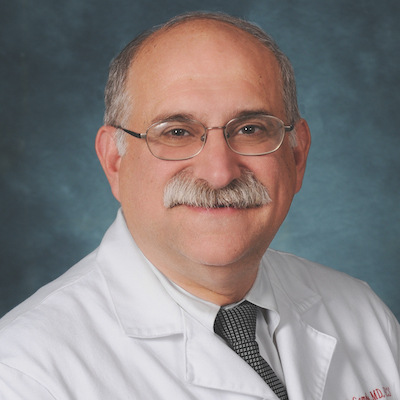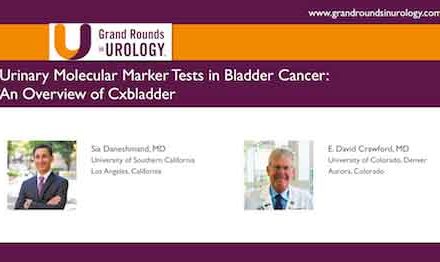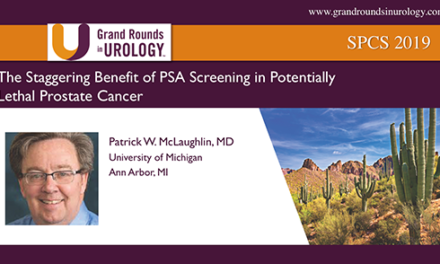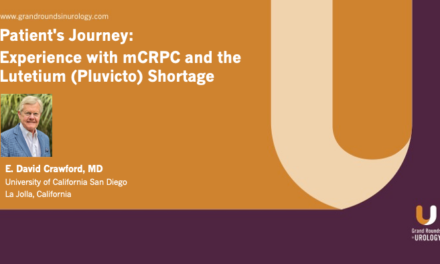- The current status of health care economics is unsustainable for the nation and a transition to value-based care is both desirable and inevitable. During this transition, it is imperative that we as urologists remain actively engaged with regulatory and legislative bodies to both educate ourselves and advocate for our patients so that the resources necessary to diagnose, treat, and research new therapies for patients with genitourinary disease are appropriately allocated.
- We need to continue to find ways to utilize advanced practice providers (APPs) and provide a team-based approach to urological care, especially to extend access to care and improve efficiency.
- Next Generation Imaging (NGI) using positron-emission tomography (PET) for the detection of metastatic disease undoubtedly performs better than conventional imaging. Future directions need to focus on multidisciplinary investigation of the impact on outcomes in order to identify the appropriate test in a specific clinical situation that will lead to the greatest clinical value.
- Future clinical studies should strive to incorporate advanced image and data analytic tools in various clinical settings, including treatment response.
- Therapeutic radio-pharmaceuticals, such as radium-223 and prostate-specific membrane antigen (PSMA) targeted agents, will serve an important role in the treatment of advanced prostate cancer patients.
Leonard G. Gomella, MD, FACS
Thomas Jefferson University
Philadelphia, Pennsylvania
ABOUT THE AUTHOR
Leonard G. Gomella, MD, FACS, serves as the Bernard W. Godwin, Jr. Professor of Prostate Cancer, Chairman of the Department of Urology, Senior Director of Clinical Affairs for the Sidney Kimmel Comprehensive Cancer Center, and the Enterprise Vice President of Urology at the Jefferson Health System at Thomas Jefferson University in Philadelphia, Pennsylvania. Dr. Gomella's lab, a part of the Jefferson Sidney's Kimmel Comprehensive Cancer Center, is involved in clinical research for the development of techniques to treat cancers.






